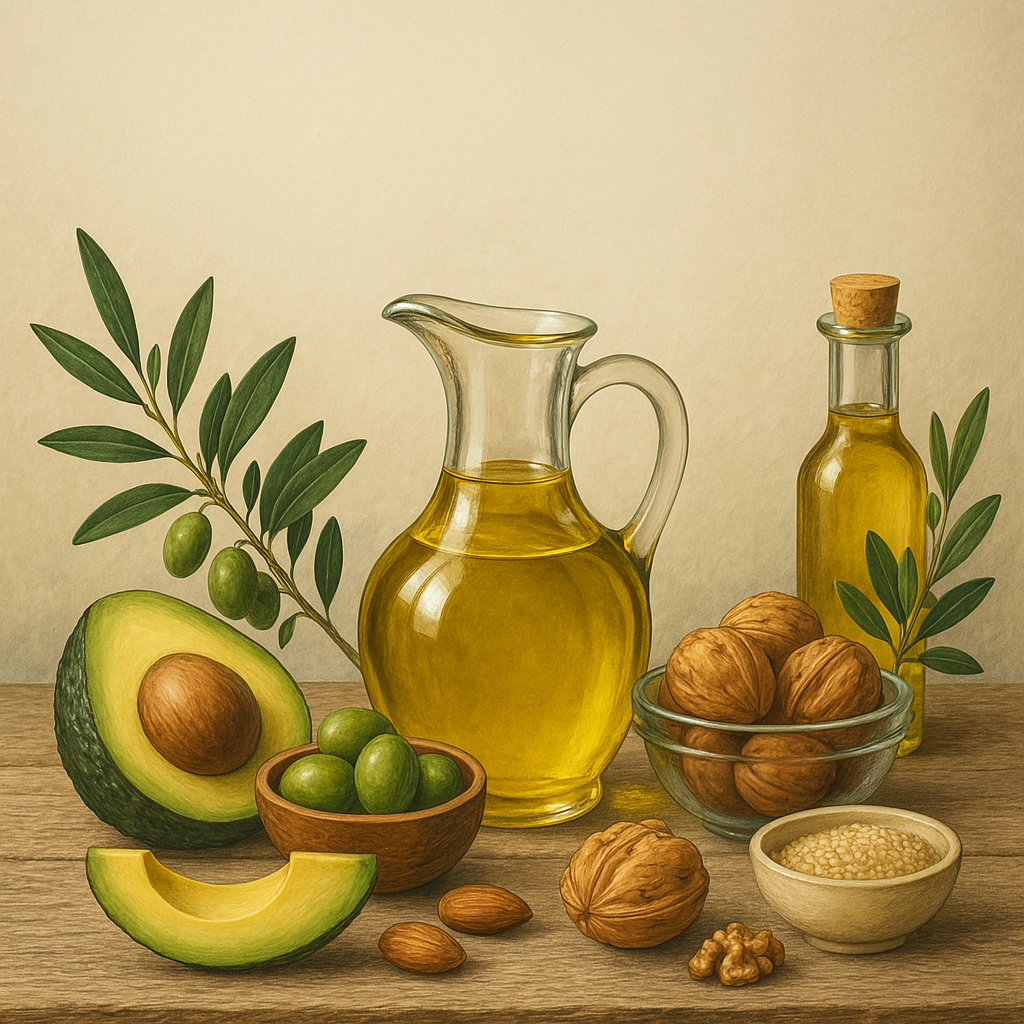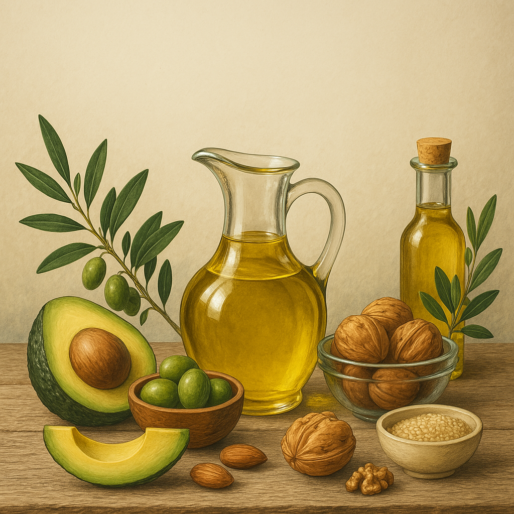- Your cart is empty
- Continue Shopping

The Role of Healthy Fats in Your Diet: Choosing the Right Cooking Oil
Fats are an essential part of a balancedq diet, providing energy, supporting cell function, and aiding in the absorption of fat-soluble vitamins (A, D, E, and K). However, not all fats are created equal. Choosing the right cooking oil can make a significant difference in heart health, weight management, and overall well-being.
This guide explores the role of healthy fats and how to pick the best cooking oil for your needs.
1. Why Are Healthy Fats Important?
Many people believe that fats are unhealthy, but the truth is that healthy fats are necessary for various body functions, including:
• Providing energy – Fats serve as a long-lasting energy source.
• Boosting brain function – Omega-3 and omega-6 fatty acids support cognitive health.
• Improving heart health – Healthy fats help maintain cholesterol levels.
• Aiding in nutrient absorption – Fat-soluble vitamins (A, D, E, K) need fat for effective absorption.
• Supporting hormone production – Fats help in maintaining hormonal balance.
2. Types of Dietary Fats: Good vs. Bad
| Type of Fat | Source | Health Impact |
| Unsaturated Fats (Healthy) | Olive oil, avocado oil, nuts, seeds, fish | Reduces bad cholesterol, improves heart health |
| Saturated Fats (Moderation) | Coconut oil, ghee, butter, dairy | Provides energy, but excessive intake can raise cholesterol |
| Trans Fats (Unhealthy) | Processed foods, margarine, hydrogenated oils | Increases bad cholesterol, linked to heart disease |
• Best Choices: Unsaturated fats from plant-based oils like olive, avocado, and flaxseed oil.
• Avoid: Trans fats found in processed and fast food.
3. How to Choose the Right Cooking Oil?
When selecting a cooking oil, consider these factors:
• Smoke Point – The temperature at which an oil starts burning. Choose high-smoke-point oils for frying.
• Nutrient Content – Opt for oils rich in omega-3, antioxidants, and vitamins.
• Processing Method – Prefer cold-pressed or unrefined oils over refined oils.
Best Cooking Oils Based on Use:
| Cooking Method | Best Oil Choices |
| High-Heat Cooking (Frying, Sautéing) | Avocado oil, peanut oil, ghee |
| Medium-Heat Cooking (Stir-Frying, Roasting) | Olive oil, coconut oil, sesame oil |
| Raw Use (Salads, Dressings, Drizzling) | Extra virgin olive oil, flaxseed oil, walnut oil |
4. Best Healthy Cooking Oils for Your Diet
• Avocado Oil – High in monounsaturated fats and vitamin E, ideal for high-heat cooking.
• Extra Virgin Olive Oil – Rich in antioxidants and heart-healthy fats, perfect for salads.
• Peanut Oil – Great for frying, with a mild nutty flavor.
• Coconut Oil – Contains MCTs (Medium-Chain Triglycerides) that boost metabolism.
• Sesame Oil – Helps in reducing inflammation and supports digestion.
• Flaxseed Oil – High in omega-3, great for heart health but should not be heated.
5. Oils to Avoid or Limit
• Refined Vegetable Oils (Soybean, Corn, Canola) – Highly processed and may contain harmful trans fats.
• Hydrogenated Oils – Found in margarine and processed foods, linked to heart disease.
• Palm Oil – High in saturated fat and often processed with chemicals.
Final Thoughts: Making the Right Choice
The key to a healthy diet is choosing nutrient-rich, minimally processed oils and using them in moderation. Incorporate healthy fats from natural sources like avocados, nuts, and seeds, and switch to cold-pressed, heart-friendly oils for cooking.
Small changes in your cooking oil choices can have a big impact on your health. Make the switch today


